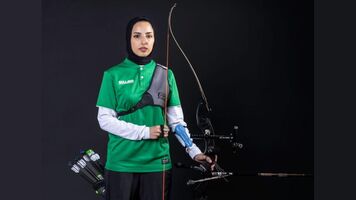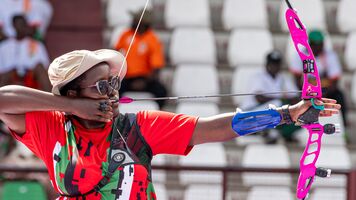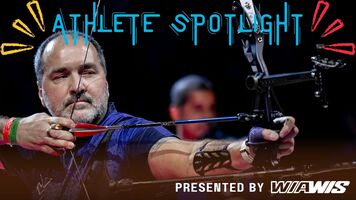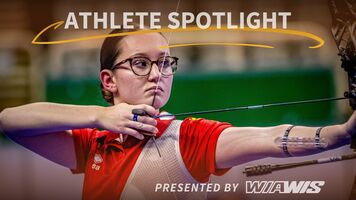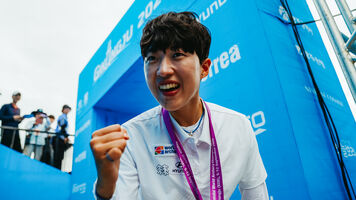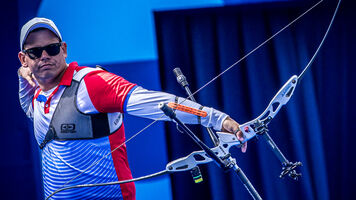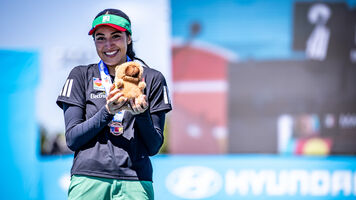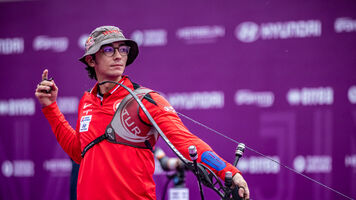Ane’s quiet fight against racial prejudice, and inspiring youngsters
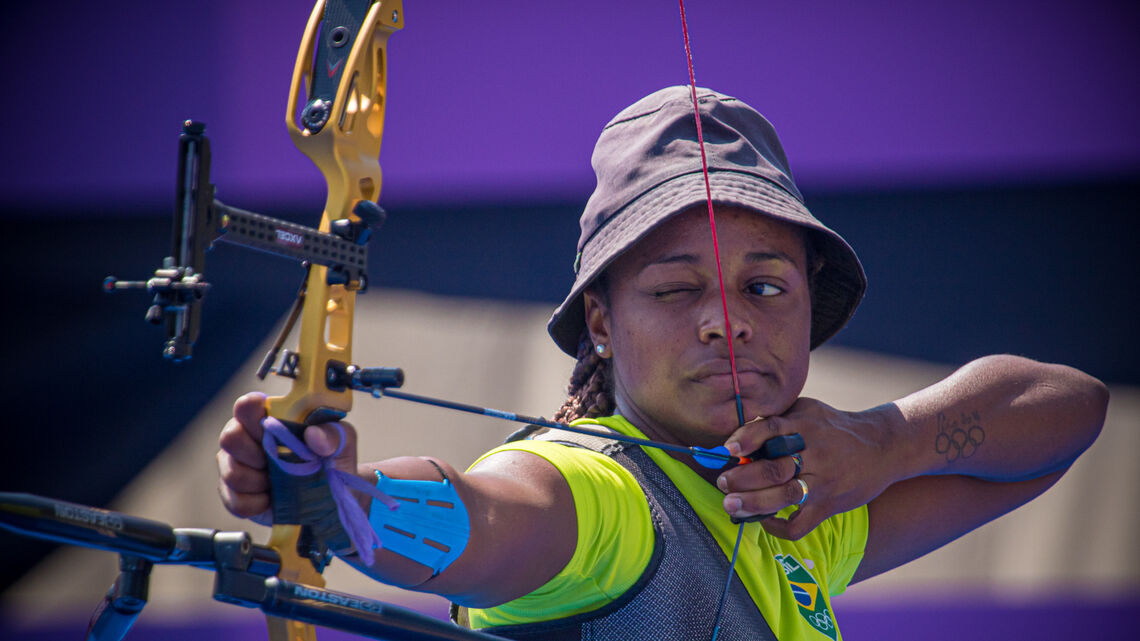
ATHLETE SPOTLIGHT is presented by WIAWIS.
Ane Marcelle Dos Santos has been a member of Brazil’s national team for a decade.
She’s the country’s most decorated archer but her story carries further, with a message of inclusion that transcends far beyond her performances on the archery field.
A shy smile appears on her face as she carefully places her bow on the ground.
At 30 years old, she nevertheless exudes the confidence of an athlete with experience.
As she sits on a worn plastic chair, wearing the bucket hat that accompanies her as she attempts to qualify for Paris 2024 this summer, Ane Marcelle‘s memories of the Games immediately take her back to Rio 2016.
It was there, on home soil, that she experienced her first Olympics.
It was there, too, that she fell victim to racial prejudice within the sporting sphere. Because of the hat that she always wears…
“After a match I won in Rio, someone told me that I wore my hat to hide my horrible hair from the world,” she says. “It really got to me.”
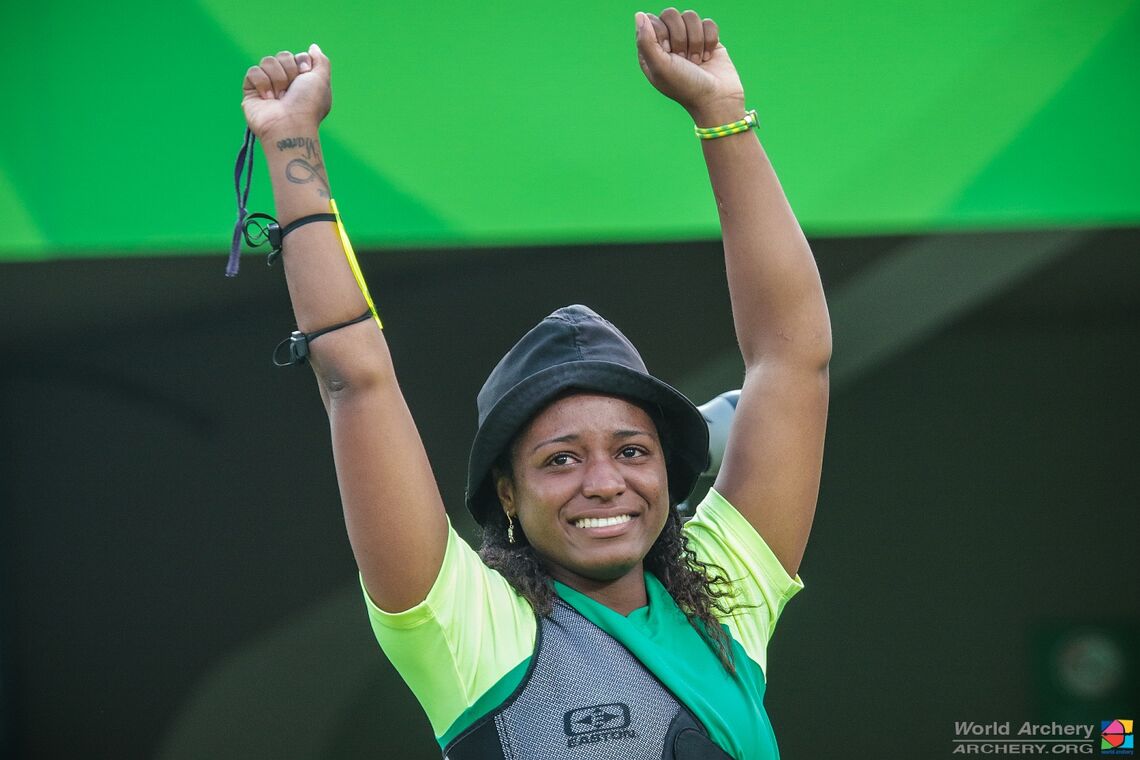
Born in Rio de Janeiro, Ane grew up in the city of Maricá. As a child, she was fascinated by the Olympic track and field competitions that she watched on television.
Archery arrived in her life through a social project that enabled schoolchildren to practise a sport – and still exists today in her hometown.
“I was lucky enough to be able to do it for free,” she explained. “If I am the athlete I am today, with already two appearances at the Olympic Games, trips and more medals than I can count, it is thanks to this project.”
Ane won individual bronze at the Pan American Championships in 2014, at just 20, and was then selected for her home Olympics two years later. She won her first two matches and was the only one of the six Brazilian archers to make it to finals day…
…while that comment played on her mind.
“Thank god I have a family around me,” she said. “They have been very supportive, and I have managed not to let this poison my heart.”
“I know I deserve to be here, I worked for it. And I also continue to inspire little girls and boys.”
Ane’s time on the national team has seen her travel around the globe.
Many have been welcoming – but not all.
“I felt like the looks weren’t expressing curiosity,” she recalls a moment spent exploring a local during a competition abroad. “Like, ‘oh, a person of a different colour’.”
“Instead, they were looks that said: ‘What is she doing here?’”
“I think I’m truly a warrior, by the fact that I’m still here today.”
A two-time gold medallist – individual and team – at the 2022 South American Games among her recent accolades, Ane’s results don’t list the colour of her skin.
Her performances in competition might not annihilate prejudice in society but, on the shooting line, the target makes no distinction between race, gender or social glass.
“I think racial prejudice is always going to exist,” she says. “There are people who think we can overcome it, but there will always be some.”
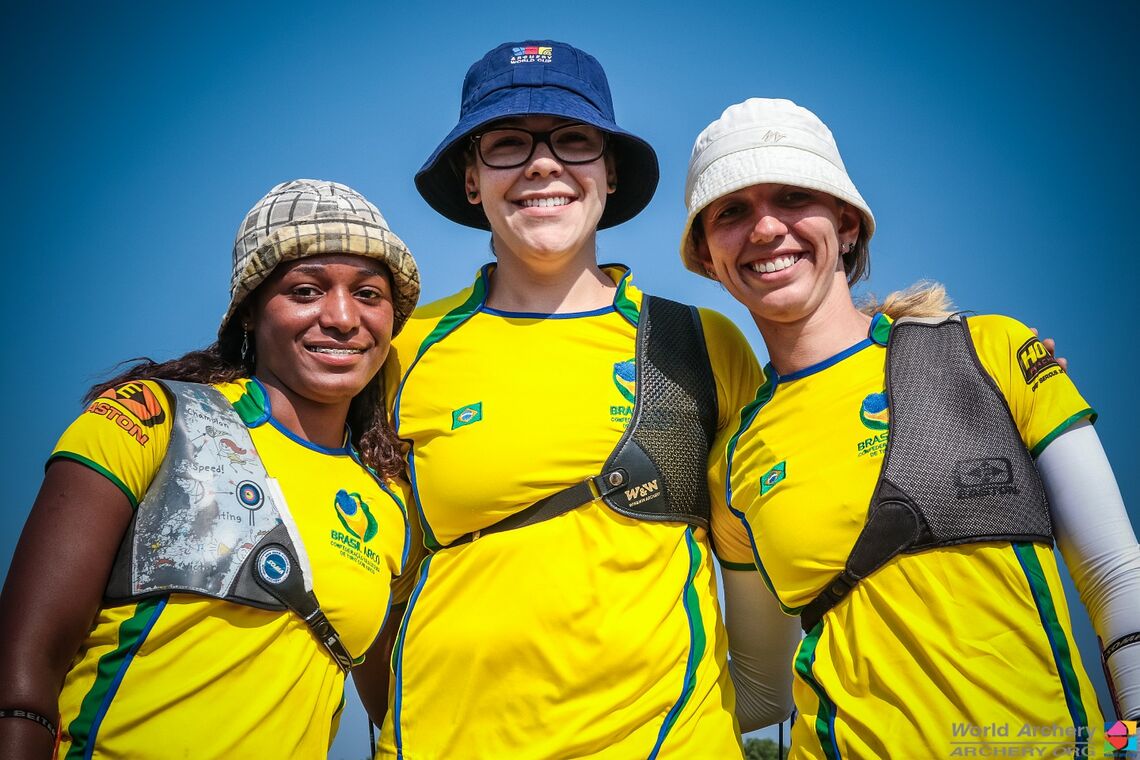
Racism directed at sportspeople has been in the spotlight in Brazil lately. Footballer Vinícius Junior, who plays for Real Madrid, fell victim during the Spanish championship last year.
“At no time did he respond to these acts of aggression,” says Ane. “[Change] must come from us, not paying attention to it.”
Ane still feels a stare, sometimes. Seeing others rise above it inspires her.
“I feel proud of that, of reacting like, ‘I’m going to continue, I’m going to show that we’re here because we deserve it’,” she says.
Instead of hiding from prejudice she, quietly but proudly, confronts it.
“In my sport, there are few black people,” she says. “Even at the Archery World Cup in Paris last summer, we could be counted on the fingers of our hands.”
Progress comes from those who create change. Ane is leading the way.
“Coming to Paris for the Olympic Games would mean inspiring young athletes of colour.”


